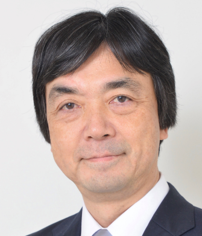BRAIN

The Moonshot R&D Program for agriculture, forestry and fisheries
The global demand for food is estimated to increase 70% by 2050. Since excessive focus on production efficiency would hamper the cyclical function of the earth, it is essential to establish a food production system friendly to the global environment while increasing the food supply. Moonshot Goal 5 aims at addressing the issue with eight R&D projects, which are promoted by BRAIN.
Moonshot Goal 5 decided by Council for Science, Technology and Innovation (CSTI)
Creation of the industry that enables sustainable global food supply by exploiting unused biological resources by 2050
For Foreign Institutions: Research Agreements
Message from Program Director
|
Dr. CHIBA Kazuhiro President, Tokyo University of Agriculture and Technology |
With the formation of agrarian societies, humankind has acquired a stable method of sustainable food supply. However, with the dramatic expansion of human activities in recent years, the sustainable supply of food, which is an inseparable part of human existence, has fallen into a situation where there is no longer any prospect for the immediate future. Overcoming this difficulty is not only a great responsibility we have for the future, but also an intellectual challenge with unexperienced problems. With a clear vision and the ability of design, we must think outside the box and solve the global-scale problems.
News
March 31, 2025
▶A new Research Agreement scheme has been launched to facilitate the participation of foreign research institutions in commissioned research projects. NEW!
Jul 17, 2025
▶Moonshot Goal 5 results for five years from their start in 2020 are summarized in movies.
Mar 15, 2023
▶Public Call for Project Managers of Moonshot R&D Goal 5: food loss reduction (due May 9, 2023, noon)
Jan 30, 2023
▶Moonshot R&D Programme was updated to participants of CBD meetings, with a focus on Goal 5 (sustainable food supply).
Movies
Moonshot Goal 5 results from 2020 for five years are summarized.
| Moonshot Goal 5 results from 2020 for five years (digest) | Moonshot Goal 5 results from 2020 for five years (whole) |
R&D Projects
There are eight projects under the Moonshot Goal 5, as follows:
Goal 5 Reference
Program Overview
Moonshot Research and Development Program is under the initiative of Cabinet Office (CAO). For further info, visit the following external sites:
- Moonshot R&D Program Outline (external link: CAO website)
- Moonshot R&D Program Goal 5 (external link: CAO website)
- Moonshot R&D Program Goal 5 Conception (external link: Ministry of Agriculture, Forestry and Fisheries (MAFF) website)
Goals and Funding Agencies
| Moonshot Goals | Funding Agencies |
|---|---|
| Goal 1 : Realization of a society in which human beings can be free from limitations of body, brain, space, and time by 2050. | Japan Science and Technology Agency (JST) (external link) |
| Goal 2 : Realization of ultra-early disease prediction and intervention by 2050. | JST (external link) |
| Goal 3 : Realization of AI robots that autonomously learn, adapt to their environment, evolve in intelligence and act alongside human beings, by 2050. | JST (external link) |
| Goal 4 : Realization of sustainable resource circulation to recover the global environment by 2050. | New Energy and Industrial Technology Development Organization (NEDO) (external link) |
| Goal 5 : Creation of the industry that enables sustainable global food supply by exploiting unused biological resources by 2050. | Bio-oriented Technology Research Advancement Institution (BRAIN) |
| Goal 6 : Realization of a fault-tolerant universal quantum computer that will revolutionize economy, industry, and security by 2050. | JST (external link) |
| Goal 7 : Realization of sustainable care systems to overcome major diseases by 2040, for enjoying one's life with relief and release from health concerns until 100 years old. | Japan Agency for Medical Research and Development (AMED) (external link) |
| Goal 8 : Realization of a society safe from the threat of extreme winds and rains by controlling and modifying the weather by 2050. | JST (external link) |
| Goal 9 : Realization of a mentally healthy and dynamic society by increasing peace of mind and vitality by 2050. | JST (external link) |
| Goal 10 : Realization of a dynamic society in harmony with the global environment and free from resource constraints, through diverse applications of fusion energy, by 2050. | JST (external link) |









